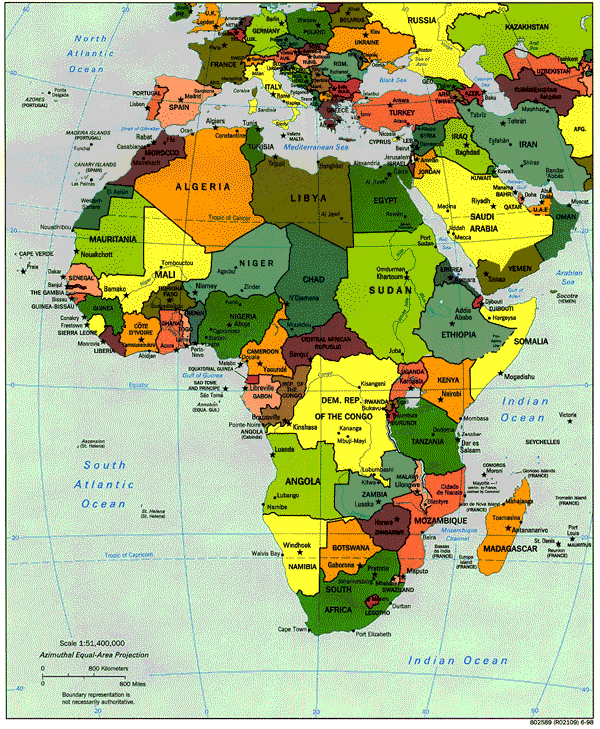O ano de 1979 marca a política norte-americana no Oriente Médio, região mais rica em petróleo do mundo: em plena Guerra Fria, a Revolução Iraniana derruba do poder o xá Reza Pahlevi, ditador laico pró-Ocidente, substituído pelo aiatolá Khomeini, o qual nacionaliza as ricas reservas petrolíferas do país.
Isso faz com que os Estados Unidos passem a fornecer diversos tipos de armas, entre elas químicas e biológicas (o que se configura grave crime de guerra), ao ditador Saddam Hussein, presidente secular do Iraque (país que possui a segunda maior reserva petrolífera do globo), na guerra contra o Irã (1980-1988) por questões fronteiriças, a qual se tornaria a batalha mais longa e sangrenta pós-II Guerra Mundial. É desta guerra que surge um dos maiores escândalos de corrupção da história dos EUA, envolvendo diretamente o presidente Ronald Reagan e seu vice, George H. W. Bush (pai), conhecido como Irã-Contras.
Ainda em 1979, a União Soviética invade o Afeganistão (região historicamente estratégica à geopolítica global) e, devido à tal invasão segundo a versão oficial, os EUA, com apoio de outros países, armam e ensinam métodos de tortura aos mujahidin (“combatentes” em árabe, também conhecidos como “senhores da guerra”) – grande parte dos que viriam a ser membros do Taliban e criminosos da Aliança do Norte colocados no poder pelos EUA pós-11 de Setembro.
Quanto à invasão soviética de 1979 e o apoio norte-americano aos afegãos resistentes, seria provado posteriormente, igualmente através de depoimentos de ex-funcionários da Casa Branca e de documentos oficiais revelados, que a infiltração norte-americana em solo afegão precedeu a invasão soviética através de operações da CIA em estreita ligação com o Inter-Services Intelligence (ISI), serviço de Inteligência do vizinho Paquistão, fato tampouco divulgado pela grande mídia internacional.
Revelaria anos mais tarde Zbiegniew Brzezinski, funcionário do Conselho Nacional de Segurança dos EUA de 1977 a 1981, ao diário francês Le Nouvel Observateur, entre diversos relatos de suas conversas diretas com o então presidente de seu país, Jimmy Carter, alertando-o seriamente sobre os perigos da oculta política norte-americana naquela região, que segundo ele serviriam para induzir à invasão soviética e gerar um caos no Afeganistão, tudo isso, de suma importância para a história e mesmo para as relações internacionais hoje, abafado totalmente pela Imprensa mundial:
Em 1982, Malalaï Joya, com quatro anos de idade, refugia-se com a família do Afeganistão, nação que vive absoluto caos, ao Irã e depois ao Paquistão, onde passaria toda a sua infância e adolescência. Somam-se mais de 4 milhões de afegãos refugiados aos países vizinhos neste momento quando, em solo paquistanês, Joya fica sabendo das dores de seu povo, especialmente mulheres e meninas, as quais sofreram com a misoginia cruel dos mujahidin em seu país. O Afeganistão vive a pior situação sócio-política de sua história durante a resistência às forças soviéticas.
Com o passar do tempo, enquanto o número de afegãos refugiados aos países vizinhos cresce, em geral em péssimo estado de saúde, Joya decide ensinar meninas e mulheres a ler e escrever – inclusive sua própria mãe. Dentro do Afeganistão, sob apoio dos EUA os mujahidin levam o país a bater recordes mundiais históricos da plantação de ópio, do qual se produz a heroína, convertendo-se no maior produtor e exportador do produto em todo o mundo – o que serve para financiar os mujahidin através do contrabando, sobre o que vale ressaltar que a sociedade norte-americana é a maior consumidora de drogas do mundo.
Quando a União Soviética se retira do país em 1989, através dos Acordos de Genebra, inicia-se violenta guerra civil no Afeganistão. O saldo da Guerra Fria em solo afegão já foi altíssima, deixando duas dezenas de soviéticos mortos, e um milhão de afegãos. Nestes 10 anos, o total de injeção financeira dos EUA em favor dos combatentes afegãos soma 6 bilhões de dólares. Nos anos subsequentes, seguiria multiplicando-se a produção de ópio que serve como outra grande receita à resistência.
Em 1990, Hussein exige do vizinho Kuwait determinadas terras na região dos portos de Bubyian e Uarba, historicamente pertencentes ao Iraque, cuja anexação levaria este país a possuir a maior reserva petrolífera do mundo. A Casa Branca manifesta-se, dizendo que se trata de assunto interno entre os dois países, garantindo diretamente ao ditador iraquiano que não interferirá na questão, cujo encontro possui transcrição publicada.
Porém quando o conflito árabe se inicia, a administração de Bush pai, diretor da CIA nos anos de invasão soviética ao Afeganistão, endurece o discurso contra aquele que, desde o fim da década passada até o presente, recebe apoio direto de Washington: agora, é acusado de terrorista por colocar a humanidade em risco, com as mesmas armas fornecidas pelos EUA. Assim, inicia-se em 1991 a curta e devastadora Guerra do Golfo, que deixa o Iraque arrasado, mas não derruba Hussein (fato “curioso” que obriga os EUA a prolongar sua política “humanitária” no Oriente Médio).
Em 30 de janeiro de 1991, observou Gregg Easterbrook, especialista em assuntos externos dos EUA, à revista norte-americana The New Republic:
“Mas a maior falha moral na Guerra do Golfo (…) foi a recusa do Ocidente em admitir, ou pelo menos discutir, não algumas mortes acidentais de civis, mas os 100 mil mortos entre os alvos militares no Iraque. Katherine Boo, do Washington Monthly, notou que ao longo da guerra a mídia norte-americana organizou grandes tabelas de perdas, listando em uma coluna quantos tanques e aviões do Iraque haviam sido abatidos. Mas não houve qualquer menção às mortes do lado iraquiano: era como se o objetivo do “exercício” fosse eliminar montes de máquinas e não seres humanos. As famosas palavras do chefe das Forças Armadas, Colin Powell, sobre o Exército Iraquiano – ‘vamos estilhaçá-lo e depois eliminá-lo’ – claramente eliminaram qualquer consideração sobre a condição humana do inimigo. O Pentágono liberou dúzias de vídeos que mostravam bombas inteligentes atingindo objetos inanimados como bases de mísseis; mas há que se lembrar que até o momento não foi liberado nenhum centímetro de filme mostrando qualquer combate envolvendo seres humanos. Censores militares enlouqueceram quando um comandante deixou alguns repórteres ver um vídeo feito de um helicóptero Apache que atacou um batalhão no Iraque. No tape, adolescentes aterrorizados correm caoticamente por todas as direções, enquanto metralhadoras disparando do helicóptero, que eles não conseguem ver, cortam seus corpos pela metade. O vídeo foi rapidamente tirado de circulação. Quando perguntei a razão disso a um funcionário do Pentágono, ele respondeu: ‘Se permitirmos que as pessoas vejam esse tipo de coisa, nunca haverá outra guerra’“.
No Afeganistão, em 1994 é fundado o Taliban, movimento estudantil composto por fragmentos de mujahidin. Com foco na luta interna, cresce muito rapidamente e dois anos mais tarde, após sangrentas batalhas no país, sufoca a guerra civil assumindo o poder com linha extremamente dura, especialmente contra as mulheres e contra toda e qualquer oposição. Forma Estado teocrático através da aplicação da Sharia, levada às últimas consequências, motivo pelo qual destrói Patrimônios da Humanidade, considerados objetos de idolatria.
Em 1998, com 20 anos de idade, Joya insiste à família para que retornem à terra natal, da qual as forças soviéticas saíram arrasadas há exatos 10 anos: ativista no Paquistão em prol das mulheres, em seu país de origem Joya quer ensinar em escolas clandestinas pois o Taliban, há quatro anos no poder, pratica perseguição sistemática e os piores crimes contra suas compatriotas, ocupando já mais de 90% do território afegão das mãos da Aliança do Norte..
A família de Joya teme seriamente tal trabalho, mas Joya está irredutível, e assume corajosamente, irredutivelmente o desafio na OPAWC (Organização para a Promoção das Habilidades das Mulheres Afegãs, na sigla em inglês). Apenas uma suspeita por parte dos talibans, que conta com espiões por todo o país, valer-lhe-ia, no mínimo, espancamento público, senão mesmo a morte. Assim, Joya e suas alunas vestem uma burca, fingem que carregam um Corão a fim de rezar, e vão estudar. Desde que o Taliban assumiu o poder em 1994, no entanto, a produção de ópio tem diminuído radicalmente, atingindo níveis baixíssimos.
Ainda em 1998, embaixadas dos EUA em países da África são atacadas a bomba, matando mais de 200 pessoas – dentre eles, alguns cidadãos norte-americanos. Osama bin Laden, expulso da Arábia Saudita anos antes por práticas terroristas, é apontado como o mentor dos bombardeios através da Al=Qaeda. Os EUA, sob governo de Bill Clinton, respondem bombardeando campos de treinamento da rede comandada por Bin Laden, além de atacar uma fábrica farmacêutica acusada de armazenar armas químicas
No final de 2000, George W. Bush (filho), ex-governador do Texas, é eleito presidente dos Estados Unidos, com programa de governo já preparado durante a campanha presidencial para a guerra, especialmente no Oriente Médio através do documento batizado de Project for the New American Century (Projeto para um Novo Século Norte-Americano).
Não por coincidência, sua equipe de governo é praticamente a mesma de seu pai, o que implica dizer que os arquitetos da “Guerra ao Terror” seriam os mesmos idealistas da resistência afegã (talibans e senhores da guerra) contra os soviéticos, e da Guerra do Golfo contra o Iraque em 1991. Logo no primeiro ano, Bush, que se tornaria o presidente que mais férias tirou na história dos EUA e em tão pouco tempo (antes de 11 de setembro de 2001), ver-se-ia entremetido em escândalos de corrupção envolvendo suas relações político-comerciais com a empresa Enron, dos próprios Estados Unidos. A mídia local não daria segmento a este sério e comprovado caso.
Há mais de 20 anos Bush mantém, a exemplo de diversos integrantes de sua equipe de governo e seu próprio pai, negócios petrolíferos com a família Bin Laden, herdeira da segunda maior fortuna saudita. Quando governador, Bush e seu vice-presidente Dick Cheney receberam no Texas uma delegação do Taliban, a fim de discutir a passagem de dutos pelo Afeganistão a serem construídos e explorados pela empresa norte-americana Unocal, sem chegar a um acordo. Deste encontro, o empresário Cheney consegue, para sua empresa Hulliburton, contrato para exploração de petróleo em solo afegão, e a BBC de Londres é o único veículo de comunicação em todo o mundo a divulgar tal encontro.
Em dezembro de 2000, a Al-Qaeda promove ataque suicida contra o USS Cole, embarcação norte-americana ancorada no porto do Iêmen. E em maio de 2001, poucas semanas após visita de líder taliban à Casa Branca a fim de melhorar a imagem dos donos do poder afegão perante o Departamento de Defesa dos EUA, a CNN noticia que o governo do país continua financiando os mujahidin: o secretário de Estado de Bush anuncia milionária “ajuda humanitária” ao governo taliban, que há 5 anos aterroriza a sociedade afegã com extremismo religioso. O jornalista Robert Sheer escreve dura matéria sobre o caso no diário Los Angeles Times, mas o caso perde-se no vazio.
Em agosto de 2001, a CIA entrega ao presidente Bush um documento de extrema urgência: Bin Laden Determinado a Atacar dentro dos EUA, é seu título. Bush, de férias em seu rancho no Texas, ignora totalmente o memorando e ofende o funcionário do serviço secreto de seu país, que o entregou a advertência. Esta é a última das advertências da CIA ao presidente Bush durante o primeiro semestre de 2001, alertando-o de ataques terroristas dentro do país.
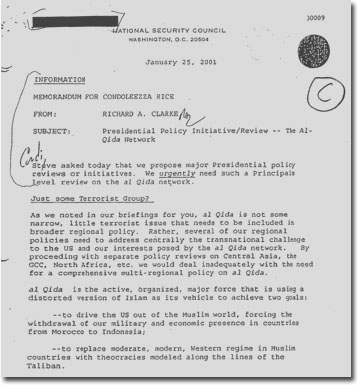
Arquivo da Segurança Nacional dos EUA: Memorando entregue em janeiro de 2001 a Bush por Richard Clarke, funcionário da CIA solicitando medidas de segurança urgentes contra ataques terroristas, ignorado pelo presidente
Mais tarde, seria ainda revelado que funcionários de outras agências de Inteligência do país também haviam entregue sérias revelações de ataques em solo norte-americano, às vésperas do 11 de Setembro, ignorados por completo por Bush, pelo que se demitiram de seus cargos indignados. A esta altura, Bush despenca nos índices de aprovação e, além de crise econômica, há crise política enquanto o presidente se vê isolado inclusive dentro de seu partido, e envolvido em casos de corrupção.
Até setembro de 2001 o governo de Washington mantém estreitos laços com os talibans e com Osama bin Laden, recebendo alguns de seus líderes na Casa Branca para seguir discutindo negócios petrolíferos, pouco divulgados e logo abafados pela mídia internacional. A proposta norte-americana para a passagem de oleodutos através do solo Afeganistão é sempre rechaçada pelo Taliban.
Ainda às vésperas de 11 de setembro, os serviços de inteligência dos EUA alarmam a Casa Branca através de documentos: a administração de Bush deve agir, pois há planos de ataques em solo norte-americano com uso de explosivos. Porém, o presidente Bush, eleito de maneira comprovadamente fraudulenta além de envolvido em escândalos de corrupção com a empresa Enron, ignora e exige, terminantemente, que se esqueça a questão.
Por isso, oficiais da CIA se demitem, indignados afirmando que algo muito sério acometerá o país, matando vidas humanas. Paradoxalmente, seria revelado em outubro deste mesmo ano que Bin Laden, internado em julho no Hospital Americano de Dubai, capital dos Emirados Árabes (cortesia deste país, aliado da Casa Branca, ao saudita de origem iemenita) recebeu mais de uma vez visitas amigáveis de agentes da CIA. Portanto, segundo a versão oficial, os faraônicos ataques de 11 de setembro de 2001 teriam sido comandados por um paciente em Hospital Americano (o líder da Al-Qaeda esteve internado até horas antes de 11 de setembro), onde o suposto mentor dos ataques recebera gentilmente funcionários da Inteligência dos EUA.
11 de setembro de 2001, dia do maior ataque em solo norte-americano de toda a história: logo nos primeiros dias após tais crueldades que chocam o mundo, surgem sérias contradições em relação à versão oficial (além de elas mesmas, em alguns casos, contradizerem-se totalmente), através de testemunhas, especialistas (incluindo professores de universidades norte-americanas e diversos outros cidadãos que estiveram nos locais dos ataques) e radares além de alguns fatos no mínimo muito curiosos. Entre tantos outros:
Justamente neste dia, os Standard Operating Procedures (defesa aérea do país, a mais potente do mundo) estiveram inexplicavelmente suspensos, algo jamais ocorrido na história dos Estados Unidos não podendo, assim, enviar jatos que impedissem os supostos aviões (que por meia hora sobrevoaram os espaço aéreo mais seguros do mundo) de executarem seus ataques (tal omissão nunca seria explicada, nem aparecido o responsável por ela e, ainda mais intrigante, os controladores de voo e funcionários do FBI responsáveis pela questão não apenas não seriam demitidos, como seriam ainda promovidos).
Também seriam logo constatadas graves falhas ao permitir os ataques dos quatro aviões por parte da North American Aerospace Defence (defesa aérea dos EUA), da Federal Aviation Administration (controle de voos) e da National Manufacturing Competitiveness Council (Comando Militar Nacional), com base em gravações de áudio desses próprios serviços do país. Diversos de seus funcionários de alto escalão viriam a ser promovidos profissionalmente após o maior fracasso conjunto da história da segurança norte-americana.
A própria alegação da Casa Branca, através de Dick Cheney de que os caças à jato da Defesa do país não puderam deter os aviões supostamente sequestrados se deveu ao fato de que o presidente Bush, em visita a uma escola infantil no estado da Flórida, precisava dar autorização e, por isso, a comunicação atrasou-se, está em total desacordo com a legislação de segurança nacional e com os registros de diversos fatos, inclusive a hora em que Bush veio a saber dos atentados.
Imagens e testemunhas (civis e bombeiros) nas imediações das Torres Gêmeas no momento das quedas, deixam claro que explosivos foram detonados instantes antes do colapso das Torres Gêmeas do World Trade Center que, contrariando completamente as leis da física, foram abaixo à velocidade de queda livre (algo possível apenas através de implosão manipulada, jamais pelo calor do fogo; físicos, engenheiros, arquitetos e outros profissionais afirmam ainda que o calor do fogo (versão oficial para a queda) e a força do choque dos aviões seriam totalmente insuficientes para que o aço da estrutura dos arranha-céus causassem suas quedas), entre outras conclusões importantes e nada difundidas – em organizações não governamentais, esses contestadores das verões oficiais afirmam que mesmo uma labareda de fogo que cobrisse todas as torres, não poderiam derrubá-las. Logo após as quedas das torres, a prefeitura de Nova Iorque retirara os escombros do complexo do World Trade Center, estrutura mais moderna do mundo, não deixando vestígios que impedem investigações.
O próprio colapso do World Trade Center 7, vizinho às Torres Gêmeas não atingido pelos aviões, esteve envolto em totais contradições segundo especialistas que, baseados em estudos sobre os destroços e da maneira como o edifício ruiu – também na velocidade de queda livre -, afirmam ter-se tratado, indiscutivelmente, de implosão manipulada. Paralelamente, a administração de Bush evita tocar no assunto entre diversas contradições quando questionada.
Foi a primeira vez em toda a história que o calor do fogo derrubou edifícios, o que torna mais contraditória a questão da queda dos edifícios World Trade Center, levando-se em conta que prédios de outras cidades do mundo, com muito menos estrutura que os de Nova Iorque atingidos por graves incêndios, permaneceram intactos.
A manobra que o suposto avião fez para atingir o Pentágono só poderia ter sido feita por um piloto com ampla experiência, não por um amador reprovado várias vezes na escola de pilotagem; o dano no prédio do Pentágono não condiz com o que causa a colisão de um Boeing, versão oficial, contradição que vai de encontro com o que mostram os radares além do quê câmeras de um posto de gasolina, em frente ao edifício da Defesa dos EUA, tido como o local mais seguro do mundo, terem sido misteriosamente retiradas do local.
Logo após os ataques, conforme seria revelado mais adiante Bush freta secretamente um jatos para que a família Bin Laden nos Estados Unidos deixe o país, atitude no mínimo muito estranha enquanto era de se esperar que, diretamente ligada àquele que segundo a Casa Branca é o maior terrorista da história contra a sociedade local tendo tantas vidas cruelmente assassinado, os membros daquela família fossem chamados para depor em busca do paradeiro de seu membro inimigo da nação, Osama bin Laden, conforme qualquer investigação envolvendo qualquer crime, jamais protegidos, e protegidos ocultamente sem o conhecimento dos cidadãos estadunidenses.
Essas e outras questões, incluindo a suposta queda do quarto avião em uma floresta da Pensilvânia, são, desde o início, amplamente investigadas por organizações não governamentais dos Estados Unidos, as quais não recebem o mínimo espaço nos meios de comunicação mesmo chegando a importantes conclusões, que contradizem totalmente as versões oficiais.
Outro ponto fundamental envolvendo os ataques, entre diversos outros que viriam á tona com o passar do tempo através de investigações baseadas em depoimentos, estudos e diversos documentos, seria que tais atentados foram planejados com direto auxílio do ISI, serviço de Inteligência paquistanês, aliado histórico dos Estados Unidos mesmo às vésperas dos ataques que mudaram o curso da história.
Quanto a Bin Laden, acusado de imediato pela Casa Branca como mentor dos ataques, mas nunca formalmente, ele mesmo concederia, nos dias subsequentes, diversas entrevistas a veículos de informação do mundo árabe negando tal autoria, lamentando ainda pelos atentados enquanto vídeos mostrando o líder da Al-Qaeda reivindicando-os são repetidos todos os dias no Ocidente, sob traduções das TVs dos Estados Unidos – contestadas por especialistas em diversos lugares do mundo, inclusive no Brasil.
 Já em 11 de setembro de 2001, sem permitir investigação policial nos locais dos ataques, Bush responsabiliza a Al-Qaeda pelos ataques deixando implícita guerra contra o Afeganistão em discurso com forte apelo religioso, evidenciando uma suposta luta do bem contra o mal afirmando ainda que qualquer um no mundo que não estiver ao seu lado, estará contra ele.
Já em 11 de setembro de 2001, sem permitir investigação policial nos locais dos ataques, Bush responsabiliza a Al-Qaeda pelos ataques deixando implícita guerra contra o Afeganistão em discurso com forte apelo religioso, evidenciando uma suposta luta do bem contra o mal afirmando ainda que qualquer um no mundo que não estiver ao seu lado, estará contra ele.
Três dias depois Bush, de uma catedral ao lado de um rabino e de um pastor evangélico, profere outro sermão belicista- religioso: está declarada a guerra unilateral contra o terror, que fere todas as leis internacionais. Nesse ínterim, vem à tona que seis dos 19 supostos sequestradores apontados pelo FBI estão vivos, longe dos EUA e Robert Mueller, diretor do FBI, reconhece que a identidade de vários dos sequestradores suicidas está em dúvida, reporta a BBC de Londres.
Cada um dos acusados falsamente pelos ataques protesta, em diferentes países, pela mentira, mas logo o caso é abafado e, nos anos subsequentes, todos os 19 seguiriam compondo a lista oficial dos terroristas suicidas, inclusive nas telas de cinema norte-americanas. Outro fato de fundamental importância na política externa norte-americana daqui em diante, jamais levada em conta pela Casa Branca, é que nenhum dos alegados terroristas é afegão nem iraquiano, mas originária de países aliados aos EUA no Oriente Médio.
Guerras preventivas, ou de agressão ferindo o direito internacional e a Constituição dos próprios Estados Unidos, e contra aqueles que, no passado, o país apoiou como “combatentes da liberdade”, hoje sumariamente apontados como terroristas islamitas: o imperialismo levado às últimas consequências. Por duas vezes após o 11 de Setembro, o Taliban se dispõe abertamente a entregar Bin Laden em troca de que o governo de Washington não invada o Afeganistão, mas George Bush, “o presidente da guerra” como se autodenomina, está irredutível: “Não negociamos com terroristas”. Assim, a guerra do homem de guerra (em nome de Deus) é inevitável.
Em 18 de setembro, exatamente uma semana após os ataques que estão mudando o curso da história e Bush dispara nos índices de aprovação (baseado em muito ufanismo, levando a sociedade local a esquecer que o presidente é incompetente e corrupto), envelopes enviados a dois senadores dos EUA e a diversas redações jornalísticas do país contêm antraz, bactéria letal, matando algumas pessoas e deixando várias feridas. Produzido em laboratório estadunidense, ficaria mais tarde provado que o antraz foi elaborado pelo Instituto de Pesquisas Médicas de Doenças Infecciosas do Exército dos EUA, de Fort Detrick no estado de Maryland, por ocasião da II Guerra Mundial.
As alegações do vice-presidente Dick Cheney, quem geralmente toma a frente de Bush nos discursos mais controversos envolvendo os ataques nos EUA, são bastante tendenciosas, absolutamente contraditórias enquanto tenta acusar a Al-Qaeda, esquivando-se do fato do laboratório de suas Forças Armadas ser o único produtor da bactéria.
Em 26 de setembro é revelado que serviços de inteligência de outros países alertaram seriamente à Casa Branca de que a rede de Bin Laden planejara matar Bush, ignorados por este. Em 1º de outubro, o semanário norte-americano Newsweek revela que o FBI informou, às vésperas do 11 de Setembro, que o país estava na iminência de sofrer sérios ataques. Dois dias depois, Bin Laden concede entrevista a um jornal paquistanês, negando ser o mentor dos ataques de 11 de setembro.
A invasão ao Afeganistão em 7 outubro de 2001, batizada pela Casa Branca de Operação Liberdade Duradoura que promete ser “cirúrgica”, é aprovada pela ONU, que com isso contraria sua Carta no que diz respeito ao empreendimento de uma guerra, retrocedendo à era pré-II Guerra Mundial em que se praticou as maiores barbaridades unilateralmente, supostamente em nome de segurança nacional, civilização e raça superior.
A guerra de Bush contra ao Afeganistão iniciou-se 26 dias após os ataques em solo norte-americano (os quais não podem ser considerados atos de guerra, conforme abordado acima). A resposta para imediatez militar estadunidense agora, e perante enorme investida, está no fato já mencionado: o programa de governo de Bush já assumiu a Casa Branca preparado para investidas bélicas no Oriente Médio.
Logo, a guerra “cirúrgica” de Washington contra o Afeganistão evidencia-se tão falaciosa quanto contra o Iraque, em 1991: mata impiedosamente inúmeros civis inocentes. Um dos primeiros alvos das forças norte-americanas são os meios de comunicação afegãos, e a sede da rede de TV Al-Jazeera do Qatar na capital afegã, Cabul, matando e ferindo gravemente diversos funcionários. A justificativa do secretário de Defesa de Bush, Donald Rumsfeld, para atacar os meios afegãos é que “são porta-vozes do Taliban, e dos terroristas que os abrigam”.
A total disparidade entre as forças beligerantes em questão ferem as leis internacionais, bem como o fato de que o Estado afegão não atacou os Estados Unidos, o que torna tal invasão ilegítima além da própria prática das forças estrangeiras no Oriente Médio, não poupando civis, cujo número de mortos excede, em muitas vezes, o de militares.
As leis internacionais também desaprovam declaração de guerra até que todas as vias diplomáticas sejam buscadas, o que Bush nunca fez nem jamais faria em seus oito longos anos na Casa Branca. Para nem mencionar que o acusado pela administração de George Bush, Osama bin Laden, não foi levado a um tribunal e julgado, outro grave ferimento ao direito internacional.
Enquanto isso, os EUA se mantêm irredutíveis quanto a assinar os acordos que fortaleceriam o Tribunal Penal Internacional, e submeteriam seus soldados a um julgamento internacional se necessário, bem como o Estado por crimes de guerra. Nunca na história dos EUA, um presidente foi tão unilateralmente agressivo quanto Bush tem sido, marca esta que apenas se fortaleceria em seus dois mandatos presidenciais.
No dia 5 de dezembro, quando se somam mais de 2.500 bombardeios aéreos sobre o Afeganistão, a guerra é formalemente terminada através da Conferência de Bonn, na Alemanha. O Taliban está totalmente rendido, e em seu lugar os EUA colocam no poder, em 21 de dezembro, o cientista político e ex-consultor justamente da Unocal, Hamid Karzai, para formar gabinete interino até que hajam eleições diretas. Assim que toma posse, Karzai aprova a construção dos dutos que levarão petróleo e gás natural do Mar Cáspio ao seu país, favorecendo a companhia petrolífera dos EUA.
O Afeganistão bateria, ano a ano, todos os seus próprios recordes históricos na produção de ópio, voltando a ser líder mundial assim como foi à época do apoio estadunidense na década de 1980 e primeira metade de 1990. Vale apontar, em meio a tudo isso, que a sociedade dos EUA é a maior consumidora de drogas do mundo.
Logo, as liberdades civis dentro dos EUA sofrem o pior revés da história da nação, outro grave ferimento à Constituição através da Patriot Act (Lei Patriota), uma das medidas de linha-dura aprovadas pela Nova Estratégia de Segurança Nacional, ou Doutrina Bush na qual o governo autoriza, entre outras coisas, que sejam espionados e presos cidadãos que se julgue necessário, mesmo sem provas, de atos terroristas ou de ligação com eles. Junto desta Doutrina, Bush sentencia o eixo do mal a ser combatido, a todo custo: Iraque, Irã e Coreia do Norte. E “quem não estiver ao nosso lado, está contra nós”, isto é, do lado dos terroristas, é sua ameaça ao mundo.
É a Doutrina Bush que também permite aos EUA declarar guerra unilateralmente sempre que se sintam ameaçados, além de colocar qualquer nação que não esteja ao lao do país na “Guerra ao Terror” como inimiga, passível de ser igualmente atacada, com tudo isso se posicionando acima de qualquer lei, inclusive de sua própria Constituição.
Sob Estado policial, a histeria entre a sociedade norte-americana aumenta com publicações levianas em jornais, revistas e TVs sem nenhuma base, e extremamente sensacionalistas associando terrorismo com islamitas árabes enquanto não há nada que prove tal fato, alarmando os cidadãos, vendendo a ideia de que novos ataques, ainda piores que os de 11 de setembro, estão em curso. A partir de exposição sistemática das imagens dos aviões suicidas e das Torres Gêmeas em chamas, passam a ser criados e comercializados produtos “antiterror” em lojas do país: roupas, máscaras, paraquedas especiais que protegeriam as pessoas no caso de ataques.
A partir de então, Bush e os funcionários de seu governo concedem entrevistas totalmente desencontradas aos meios de comunicação, também excessivamente tendenciosos, aumentando as suspeitas da sociedade em reação ao 11 de Setembro e à “Luta contra o Terror”. A maior dificuldade da equipe de Bush é explicar a decisão unilateral de invadir o Iraque, enquanto a ONU afirma não haver naquele país bombas de destruição massiva: através da Resolução 1441, vários de seus inspetores de armas averiguaram e destruíram considerável quantidade de armas ao longo da década de 1990, sem no entanto ter encontrado nada que pudesse incriminar o regime de Hussein, considerado pela ONU um dos 10 países que mais respeitam as diferenças religiosas entre os 44 islamitas do mundo árabe (a ditadura local, cruel, resume-se à política e a reivindicações da minoria curda ao norte do país).
Em janeiro de 2002, o ex-agente do FBI John O’Neil, autodemitido do cargo em agosto de 2001 por ter suas investigações sobre a Al-Qaeda obstruídas pela casa Branca, afirma na CNN que “interesses petrolíferos das companhias dos EUA” não permitiram que seu trabalho seguisse. No mês seguinte, a ex-funcionária Julie Stirrs da Agência de Inteligência de Defesa do país, também autodemitida do cargo às vésperas do 11 de Setembro por ter suas investigações contra Bin Laden impedidas, afirma na rede de TV ABC News que a avalanche de documentos obtida em sua viagem ao Afeganistão fora confiscada por superiores no aeroporto de volta aos EUA, denunciando ainda que nunca nenhum alto escalão da Inteligência norte-americana se dispôs a ouvir o que ela trazia do Oriente Médio.
No dia 17 de abril, a senadora e ativista ambiental e pelos direitos humanos, Cynthia Anna McKinney do estado da Geórgia e uma das mais ressonantes apoiadores da criação de uma comissão para investigar o 11 de Setembro, inicia denúncias que Bush sabia com antecedência dos ataques em solo norte-americano. Passa então a ser duramente perseguida, política e pessoalmente.
Em maio, após constantes estudos independentes sobre o meio ambiente no local onde estavam as Torres Gêmeas, ativistas liderados pela ambientalista Jenna Orkin concluem que, ao contrário do que afirmou o prefeito nova-iorquino Rudolph Giuliani a fim de não interromper as atividades econômicas da região, o ar e a água têm estado seriamente contaminados, levando, até o presente, à morte diversos cidadãos e invalidando outros tantos, inclusive bombeiros que ali operaram no 11 de Setembro, e nos dias subsequentes.
Tal ocorrência é classificada de “desastre ambiental com proporções históricas” pelo que, nos próximos 10-15 anos segundo investigadores, número maior de pessoas morrerá por problemas respiratório, superando em muitas vezes o número de mortos nos ataques do 11 de Setembro: pela mentira governamental, milhares de trabalhadores não usaram equipamentos de proteção. Entre outras afirmações de Orkin em discurso púbico, incluem-se estas palavras:
No desastre ambiental do 11 de Setembro, Osama bin Laden não poderia
ter encontrado melhor colaborador, espírito mais próximo que o de George Bush
No final de 2002, quando fica claro que os EUA invadirão o Iraque, Hussein permite que a ONU inspecione seu país, abrindo o país como nunca antes e oferecendo cooperação integral. A vistoria da ONU não dá motivo às acusações da equipe de Bush. Tampouco há nada que ligue Hussein à Al-Qaeda e aos ataques do 11 de Setembro, ao contrário do que alega a Casa Branca.
A ONU, grande parte da sociedade local e diversos governos, inclusive de países vizinhos ao Iraque, são contrários à guerra e preveem uma catástrofe na região se os EUA invadirem Bagdá, alertando todos, constantemente, ao governo de Washington para que desista da invasão. Nada disso, porém, faz Bush mudar de ideia: “É consenso nesta administração que o Iraque desenvolve bombas de destruição em massa. (…) Saddam Hussein é aluno de Stálin. (…) Em se tratando de segurança, não precisamos da permissão de ninguém”.
Isso tudo contradiz as afirmações do presidente dos EUA quando perguntado por um jornalista sobre qual o envolvimento do Iraque no 11 de Setembro, pouco depois dos ataques daquele dia: “Nenhum”. Com o passar do tempo, conforme temos visto, nada surge para que a Casa Branca mude de ideia em relação a Bagdá. Em fevereiro de 2003, o jornal The New York Times revela que o governo britânico, principal aliado de Washington desde o início da “Guerra ao Terror”, admite que baseou as alegações de que Hussein desenvolve bombas de destruição em massa em matérias de revistas e jornais, não em provas consistentes.
Bush leva às últimas consequências a teologia do pastor evangélico William Branham (1909-1965), que pregava que os EUA eram predestinados por Deus a salvar o planeta “pelo poder da espada”: antes que os inspetores da ONU terminem a vistoria, o Iraque é unilateralmente invadido pelas forças norte-americanas.
Para a Segunda Guerra do Golfo como também fica conhecida esta invasão, em março de 2003 na qual os EUA contam com o maior e mais moderno contingente militar da história, contra a Guarda Republicana iraquiana que se defende com as poucas e obsoletas armas remanescentes da guerra contra o Irã e da própria Tempestade no Deserto de 1991, a administração de Bush cria, dentro de seu país, um clima de histeria generalizada através de discursos ufanistas e apocalípticos, alegando que Hussein pode atacar “novamente” os EUA, e destruir o mundo a qualquer momento.
É no mínimo muito curioso que, paralelamente a isso, há anos a Coreia do Norte afirma desenvolver armas nucleares capazes de destruir os EUA, que nada fazem. Tal “enigma” por trás de mais essa hipocrisia made in USA não é difícil de ser desvendada quando consideramos que a Coreia comunista faz fronteira com a temível China, além de não possuir petróleo. Isso também ilustra muito bem, entre tantos fatos que se acumulam ao longo dos anos, o caráter completamente farsante da “Guerra ao Terror” – para nem mencionar que o único ataque nuclear da história foi perpetrado justamente pelos EUA, contra Hiroshima e Nagasaki ao final da II Guerra Mundial, e que Israel, maior aliado dos EUA no Oriente Médio, possui bombas nucleares enquanto massacra a população palestina.
As invasões ao Afeganistão e ao Iraque configuram-se no maior revés das relações internacionais desde o Tratado de Paz de Westfália há quase quatro séculos. Logo, os afegãos veem claramente que as promessas de Bush de libertá-los da opressão, sobretudo da misoginia, não se concretizará – tudo foi uma mentira. No Iraque, além da morte de civis cresce assustadoramente também o número de militares norte-americanos mortos e o de feridos (muitos deles de maneira grave, retornando inválidos ao país), fato quase nada divulgado pela Imprensa local e internacional.
Denúncias no Afeganistão e Iraque de abusos por parte das forças de ocupação são silenciadas, até que crimes de guerra jamais vistos após a derrota do fascismo se tornam escândalo mundial – logo também esquecidos pela grande mídia. Ao mesmo tempo, são trazidos à prisão norte-americana de Guantánamo, território cubano, acusados (na maioria dos casos sem provas e, em todos os casos, sem terem sido submetidos a julgamento) de ligação com os ataques de 11 de Setembro: sofrem torturas que geram indignação em todo o mundo, e condenações oficiais, mas a administração de Bush não dá ouvidos a nada disso. A criação da prisão de Guantánamo fora do território dos EUA visa justamente a tirar o governo federal do alcance dos tribunais do país, tanto quanto ferem as Convenções de Genebra, assinadas pelos próprios EUA, as práticas naquela detenção.
Em agosto de 2003, é morto no Hotel Canal na capital iraquiana de Bagdá o diplomata brasileiro da ONU, Sérgio Vieira de Mello, em circunstâncias bastante obscuras. Viera de Mello, Representante Especial da ONU no Iraque, o brasileiro era muito bem visto entre os iraquianos, tendo uma de suas vozes oficiais afirmado que sem ele seria impossível a reconstrução do país, e opôs-se desde o início à invasão norte-americana ao país, considerando-a ilegal assim como o órgão que representa. “Já que houve a ocupação, que dure o menor tempo possível”, disse Vieira, explicando ainda que o governo de Washington aplicou de maneira distorcida a resolução 1483 a qual tirou a soberania do Iraque. “Ao invés de retirar a soberania e entregar à ONU, os EUA aplicaram-na a si mesmos”. Sua esposa explicaria, entre mistérios jamais revelados sobre sua morte, que a relação do diplomata com o estadunidense Paul Bremen, chefe da Coalizão, estava se esfriando rapidamente.
Contrariando todas as leis iraquianas de soberania, a administração de Bush invade o país em março de 2003 e simplesmente “vende” o país às empresas norte-americanas, que faturam trilhões de dólares, através da Ordem 39 através da qual os EUA se outorgam o direito de privatizar centenas de empresas, estatais, além de outro decreto prevendo que empresas estrangeiras podem se apropriar de 100% dos bancos, minas e fábricas.
Assim, os EUA ferem as regras estipuladas pela Convenção de Haia de 1907, as leis iraquianas, previstas na Constituição local, além da própria Lei de Guerras Terrestres e do código de ética do Exército dos EUA. Alguns analistas e organismos internacionais condenam o governo de Washington por isso, mas nada acontece e a mídia internacional ignora quase que totalmente tal questão.
Como resposta, a violência social explode no Iraque: protestos, explosões de oleodutos e homens-bomba espalham-se pelo país. O caos social iraquiano, igualmente desconsiderado no Ocidente, aumenta em relação aos anos de Hussein, hoje derrubado do poder e foragido. Dentro dos EUA, no segundo aniversário dos ataques do 11 de Setembro Bush e integrantes de sua equipe são processados por esposa de vítima fatal no World Trade Center.
Malalaï Joya é eleita a fim de participar de uma assembleia para aprovar a nova Constituição afegã em dezembro de 2003. Frente a frente com os mujahidin, hoje pertencentes à Aliança do Norte colocada no poder pelos EUA, denuncia-os em discurso de dois minutos que incendeia o local: é sumariamente expulsa e passa a viver escondida, ameaçada de morte. Passa então a enfrentar inimigos em três frentes, como costuma dizer: os senhores da guerra da Aliança do Norte, o Taliban e a ocupação norte-americana.
 Em maio de 2004, são revelados chocantes crimes contra a humanidade pelos alegados “libertadores do Iraque” revelando uma “guerra particular às custas do Estado” conforme reportaria duramente dias depois o semanário alemão Der Spiegel, revista justamente de um dos países que mais se opõem à invasão ao Iraque (a começar pelo governo de Angela Merkel): inúmeras torturas de soldados dos EUA contra prisioneiros de guerra (futuramente, seria comprovado que mais de 80% eram inocentes, e viriam à tona ainda imagens de esposa e filhas desses prisioneiros estupradas pelos militares estadunidenes) a mando do secretário de Defesa de Bush, Donald Rumsfeld, que a princípio negou tudo. Tais práticas fazem o mundo recordar o terror causado pelos nazistas durante a II Guerra Mundial.
Em maio de 2004, são revelados chocantes crimes contra a humanidade pelos alegados “libertadores do Iraque” revelando uma “guerra particular às custas do Estado” conforme reportaria duramente dias depois o semanário alemão Der Spiegel, revista justamente de um dos países que mais se opõem à invasão ao Iraque (a começar pelo governo de Angela Merkel): inúmeras torturas de soldados dos EUA contra prisioneiros de guerra (futuramente, seria comprovado que mais de 80% eram inocentes, e viriam à tona ainda imagens de esposa e filhas desses prisioneiros estupradas pelos militares estadunidenes) a mando do secretário de Defesa de Bush, Donald Rumsfeld, que a princípio negou tudo. Tais práticas fazem o mundo recordar o terror causado pelos nazistas durante a II Guerra Mundial.
A esta altura, o mundo todo já se opões à invasão ao Iraque, havendo protestos em todas as partes. No Afeganistão é aprovada a nova Constituição, com alguns avanços e muitos retrocessos, especialmente no que diz respeito aos direitos humanos. Nesta mesma época, Richard Clarke, ex-funcionário da CIA que pediu demissão indignado pelas advertências da Inteligência sobre iminentes ataques do 11 de Setembro, ignoradas pela Casa Branca, faz sérias denúncias envolvendo as distorções de Bush e Rumsfeld para invadir o Iraque, “porque ele já planejava fazer alguma coisa contra o Iraque muito antes daquele momento”.
Também é revelado o Grupo de Operações Preventivas e Pró-Ativas (P2OG, na sigla em inglês), através do qual Donald Rumsfeld coordenou com a CIA atividades no Iraque a fim de provocar reações violentas e, assim, justificar mais intervenção militar naquele país. Seguindo perfeitamente a linha midiática na cobertura desta “Guerra ao Terror”, o P2OG é completamente ignorado pela Imprensa predominante mundial.
Pouco depois, em outubro, a primeira eleição presidencial afegã coloca no poder Hamid Karzai da Aliança do Norte, o sempre preferido de Bush. O sufrágio universal afegão é comprovadamente corrupto e violento, atingindo grande parte de civis. O caos apenas cresce no Afeganistão enquanto o bombardeio “cirúrgico” dos EUA contra o país, conforme as palavras dos norte-americanos, massacram cada vez mais inocentes. Contudo, pouco espaço há para tudo isso na grande Imprensa internacional, e assim seguiria sendo ao longo dos anos.
A Comissão do 11 de Setembro, criada pelo Congresso para investigar as implicações dos ataques em solo norte-americano, que desde o início sofreu oposição de \Bush sob argumento de que distrairia da luta contra o terror, é melancolicamente encerrada: tratou de obscurecer cada fato envolvendo o 11 de Setembro, jamais esclarecer os fatos nem muito menos as teses contrárias às do governo; não apresentou resposta aos familiares das vítimas e demais questionadores das versões oficiais dos ataques. Foi do início ao fim controlada pelo governo, que impediu análise de diversos documentos e muitos de serem ouvidos – o próprio Bush se negou a depor.
Os memorandos de agentes da CIA entregues diretamente a Bush, apresentados como provas de que o governo sabia dos ataques, nunca foram nem seriam explicados no futuro. Nenhuma das inúmeras indagações sobre as implicações dos ataques terroristas seriam jamais questionadas pela grande mídia local nem estrangeira. Investigações independentes reivindicadas por organizações não governamentais e não partidárias, especialmente o Comitê Diretivo da Família pela Comissão 11/9, incluindo especialistas renomados dentro dos EUA, não seriam jamais realizadas, mas sempre ignoradas por Washington e sem nenhum espaço para debate na mídia.
Bush também se recusa a assinar, desde o início de seu governo, tratados em prol do meio ambiente – sendo os EUA maiores poluidores do ar. Tal recusa se manteria ao longo de todos os seus anos na Casa Branca. Além disso, o país é um dos mais violentos do mundo, onde está a maior população carcerária do planeta, a qual sofre injustiça (muitos não deveriam estar presos, gerando manifestações indignadas de juristas, que condenam a “democracia” da nação, qualificando-a de falaciosa), e tem seus direitos humanos seriamente feridos, como em poucas nações ocidentais hoje.
A crise financeira que parecia iminente nos EUA já não ronda mais, ao menos não tão perceptivelmente como anos antes: o estouro da bolha econômica está adiada, cujo crescimento tem sido impulsionado pelas guerras e saques no Oriente Médio.
Em 2004 a “Guerra Santa” de Bush está no auge, quando ele se reelege, novamente envolvido em casos comprovados de fraude eleitoral. Grande parte dos norte-americanos eram contra a invasão ao Iraque, e não veem resultados da empreitada no Afeganistão. A campanha presidencial foi extremamente apelativa em relação ao terrorismo internacional, usando de muito ufanismo com aceitação profundamente emotiva de diversos setores da sociedade local.
No Afeganistão, amplamente apoiada pelo povo Joya retorna à vida política em setembro de 2005, após novos ataques terroristas em Madri (2004) e em Londres (2005): eleita ao Parlamento, passa a denunciar crimes de narcotráfico e contra as mulheres pelos senhores da guerra da Aliança do Norte.
Em julho de 2005, é assassinado em Londres o brasileiro Jean Charles de Menezes, de 27 anos, pela Scotland Yard, policia secreta britânica, a qual usou balas que causam dores aterrorizantes na vítima antes de morrer, condenadas por agências internacionais de direitos humanos. O brasileiro fora confundido com um terrorista islamita que tentara executar ataque terrorista semanas antes na capital inglesa. A polícia britânica boicotaria de todas as formas investigações do crime contra Menezes, e os culpados não seriam jamais punidos.
Em dezembro de 2006, Hussein é julgado nos EUA e enforcado no Iraque por seu governo sanguinário, e por supostamente produzir bombas químicas e biológicas. Sobre os envolvimentos corruptos da condenação de Hussein, inclusive a filmagem e ampla divulgação de seu enforcamento, a cobertura da Imprensa dos EUA é altamente tendenciosa.
Junto dos ferimentos a todas as leis internacionais por parte da Casa Branca, que contraria a ONU e todos os organismos em favor de direitos humanos, junto dos discursos vazios e ufanistas de George Bush, e junto do vertiginoso aumento do número de civis massacrados pelas forças de ocupação no Afeganistão e no Iraque, cresce a manipulação midiática sobre a “Guerra ao Terror”, maior mentira da história, apelando, como sempre, para a indústria do cinema, estigmatizando os povos árabes islamitas em todo o mundo, impondo ao inconsciente das pessoas que eles e sua religião são terroristas a fim de justificar a agenda belicista-imperialista dos EUA, “messiânica” segundo também vende a mídia, destinada a salvar a humanidade conforme a imagem que o país tem feito de si mesmo ao longo das décadas.
A atuação da mídia norte-americana tem sido a mesma em todos os eventos terroristas dos Estados Unidos ao longo do século XX, desde as dezenas de invasões, sabotagens, golpes e carnificinas contra países da América Latina, passando pelas bombas atômicas contra Hiroshima e Nagasaki em 1945, e pelos crimes de guerra contra o Vietnã a partir de duas décadas e meia mais tarde. Assim, legitima-se as empreitadas letais do Estado mais terrorista da história, ferrenhamente defendidas sobretudo pelas elites e pelos setores mais conservadores dos EUA, mudando apenas a escusa beligerante de acordo com a ocasião.
Com os direitos civis feridos como jamais aconteceu na história dos Estados Unidos, e com as invasões ao Afeganistão e Iraque sob imposição da Casa Branca ao mundo em nome da segurança nacional, o Império estabelece a política de linha-dura perfeita para expandir sua dominação global, especialmente na região mais rica em petróleo (recurso não renovável que, de acordo com o atual nível de consumo, esgotar-se-á em 50 anos segundo especialistas) do globo em tempos de crise econômica.
Em maio de 2007, Joya é novamente expulsa das atividades políticas por aqueles que acusa de corrupção e de violar direitos humanos ao perpetrar graves crimes contra civis inocentes em nome do mesmo fundamentalismo religioso dos talibans, especialmente contra as mulheres contrariando as promessas de Bush ao invadir o país.
 Segundo a parlamentar, tais criminosos são apoiados pelo governo de Washington cujos soldados, denuncia também, cometem graves crimes dentro de seu país. A voz de Joya, dentro e fora do Afeganistão, tenta de todas as formas ser calada. Sua vida corre mais risco que nunca: vivendo clandestinamente em sua terra natal, trafega apenas de táxi escondida debaixo de uma burca, escoltada por 12 seguranças fortemente armados. Recebe solidariedade internacional, e passa a ser premiada em todo o mundo por sua coragem. Seu heroísmo vale até produção cinematográfica enquanto, ano a ano, cresce vertiginosamente o número de civis afegãos mortos pelos ataques das foras de ocupação.
Segundo a parlamentar, tais criminosos são apoiados pelo governo de Washington cujos soldados, denuncia também, cometem graves crimes dentro de seu país. A voz de Joya, dentro e fora do Afeganistão, tenta de todas as formas ser calada. Sua vida corre mais risco que nunca: vivendo clandestinamente em sua terra natal, trafega apenas de táxi escondida debaixo de uma burca, escoltada por 12 seguranças fortemente armados. Recebe solidariedade internacional, e passa a ser premiada em todo o mundo por sua coragem. Seu heroísmo vale até produção cinematográfica enquanto, ano a ano, cresce vertiginosamente o número de civis afegãos mortos pelos ataques das foras de ocupação.
Em fevereiro de 2008, após uma série de batalhas judiciais pelas condições em Guantánamo, o diretor da CIA, Michael Hayden, confessa no Congresso aplicação de métodos de tortura em solo cubano, cuja prisão a ONU vem condenando desde fevereiro de 2006 enquanto Bush negou, neste tempo todo, maus tratos a prisioneiros.
Em abril, Joya doa 30 mil dólares recebidos em prêmios internacionais por seu engajamento à construção de um hospital em sua cidade natal, mesmo mês que o gabinete da ex-parlamentar sofre ataque, após fazer denúncias de corrupção governamental, apontando o nome do parlamentar envolvido: o criminoso é pego, revela que foi subornado por integrantes do Parlamento, mas a Polícia local abafa o caso e ninguém é punido
Em outubro do mesmo ano, enquanto Joya tem sido premiada em todo o mundo, especialmente na Europa por sua luta contra os fundamentalistas religiosos e traficantes de drogas locais, e pelas denúncias contra a ocupação estrangeira sem sua terra natal, tendo sido motivo até de produções cinematográficas internacionais, a União Inter-Parlamentar que, com cooperação com a ONU, promove o diálogo parlamentar mundial em favor da paz e dos direitos humanos, condena, pública e documentalmente, a suspensão da militante afegã de suas atividades no Parlamento de seu país.
Ainda em 2008, é revelado que as bombas Mini-Nuke lançadas pelos EUA sobre o Iraque na Primeira Guerra do Golfo, eram de 6 a 30 vezes mais potentes que a atômica lançada contra Hiroshima, no final da II Grande Guerra. O orçamento militar norte-americano fecha este ano com os maiores gastos da história do país mesmo considerando a época da Guerra Fria.
Desta maneira, o 11 de Setembro funcionou como um novo Pearl Harbor aos EUA, exatamente como previa a expansão militar contida no programa Bush em campanha eleitoral, através do Project for a New American Century (tal documento ressaltou a necessidade de um novo acontecimento como o que levou os EUA à II Guerra Mundial, mencionando categoricamente Pearl Harbor).
Bush deixa a Casa Branca no início de 2009 com um dos índices mais baixos de aprovação da história, e com o forte estigma, dentro e fora do país, de mentiroso: não foram encontradas no Iraque bombas de destruição massiva, nem há nada que ligue Hussein à Al-Qaeda, dando razão à ONU. O Iraque agora vive um caos pior que sob a ditadura de Hussein, cujos assassinatos aumentam mês a mês vertiginosamente, a exemplo do Afeganistão que, ambos, Bush, prometeu libertar. Dentro dos EUA, seguem os crimes contra as liberdades civis além de todas as contradições e mentiras envolvendo o 11 de Setembro, completamente obscurecidas.
Demais fatos, no mínimo obscuros envolvendo o 11 de Setembro e todos os crimes cometidos na “Guerra ao Terror”, acabam em grande parte caindo no esquecimento do grosso da sociedade local, ou em muitos casos sem que se tenha tomado conhecimento após cobertura tendenciosa da mídia: fator que pesa muito contra Bush dentro de casa é a grave depressão econômica que acomete seu país, segunda pior de toda a história dos EUA.
A sociedade norte-americana em geral cobra de Bush muito mais os prejuízos econômicos advindos das empreitadas militares no Oriente Médio que, baseadas em mentiras, retiraram dos cofres públicos crescentemente ano a ano, trilhões de dólares em menos de sete anos, do que a prática imperialista e os ferimentos aos direitos humanos contra outros povos.
Estes dois últimos fatores não estão na agenda política dos principais partidos, Republicano e Democrata, nunca foram prioridade midiática local nem internacional, e, por conseguinte, estão quase que totalmente fora do debate social, bem como o alto número de militares norte-americanos mortos e seriamente feridos – para nem mencionar os militares e civis iraquianos e civis cujas vidas têm sido massacradas, especialmente crianças e mulheres. As liberdades civis nunca foram tão atacadas em toda a história, por tanto tempo quanto nestes anos de “Guerra ao Terror”.
 Barack Obama, eleito presidente em 2008 com discurso de renovação profunda dentro dos EUA, gerando grandes esperanças aos povos de todo o mundo devido ao discurso mais moderado que o de seu antecessor por estar sempre apoiado em discurso apresentando sobretudo maior preocupação com os direitos humanos, logo decepciona: assume o poder em janeiro de 2009, e dali em diante as liberdades civis seguiriam sendo feridas dentro dos EUA além das prisões ilegais e práticas de tortura em Guantánamo, manutenção de cuja prisão a ONU condena desde fevereiro de 2006, e o crescimento da morte de civis nos países invadidos, de modos crueis, contrariando assim suas promessas de campanha.
Barack Obama, eleito presidente em 2008 com discurso de renovação profunda dentro dos EUA, gerando grandes esperanças aos povos de todo o mundo devido ao discurso mais moderado que o de seu antecessor por estar sempre apoiado em discurso apresentando sobretudo maior preocupação com os direitos humanos, logo decepciona: assume o poder em janeiro de 2009, e dali em diante as liberdades civis seguiriam sendo feridas dentro dos EUA além das prisões ilegais e práticas de tortura em Guantánamo, manutenção de cuja prisão a ONU condena desde fevereiro de 2006, e o crescimento da morte de civis nos países invadidos, de modos crueis, contrariando assim suas promessas de campanha.
Em abril de 2009, Joya encontra-se na França com Matthis Chiroux, ex-militar norte-americano que pediu demissão em plenas atividades meses antes: Chiroux denuncia o que o Exército de seu país tem praticado no Iraque e Afeganistão, e pede perdão publicamente a Joya por ter lutado em seu país, contra seu povo.
Em junho do mesmo ano, Joya concede entrevista ao jornal brasileiro O Tempo, de Minas Gerais. A tradução de uma minientrevista publicada pelo diário é enviada, de nossa parte, ao Comitê de Defesa de Joya no Afeganistão, a qual está escondida em algum lugar do país. Recebemos a espantosa resposta de que a publicação fora completamente modificada de acordo com as palavras da ativista afegã.
Joya autoriza seu comitê a enviar-nos a versão original da extensa e bombástica entrevista, bem como os registros de seu contato com a repórter Renata Medeiros do diário mineiro para que sirvam como prova, tudo isso a fim de ser publicado e, assim, denunciada a distorção midiática pró-governo de Washington. Fazemos isso em coluna que mantemos no sitio Nolan Chart dos Estados Unidos, cuja matéria é republicada no Afeganistão pela Associação Revolucionária das Mulheres do Afeganistão.
Entre as mais fortes declarações de Joya, está a da associação da CIA no tráfico de ópio a partir do Afeganistão, de cujo produto, após a invasão norte-americana, o país da ativista volta a ser líder mundial batendo seus próprios recordes históricos, levando o país novamente à liderança internacional da produção e exportação da droga. Joya também condena o fato de uma potência econômica e militar como os EUA, apoiada por outras europeias, ser incapaz de vencer o Taliban, pequeno grupo de analfabetos que, sem apoio da sociedade afegã, valem-se de armas obsoletas – a ativista afegã aponta os indiscutíveis porquês disso… O que não interessa a O Tempo.
Joya também revela outros dados oficiais envolvendo o caos social que vive seu povo, entre eles: a cada 28 minutos, morre uma mulher durante o parto, e mais de 70% delas não recebe atendimento médico durante a gravidez (proibidas pelo Taliban); 70% sofre de insuficiência alimentar aguda; apenas 2% tem acesso à eletricidade; cerca de 92% não tem acesso a serviços sanitários; taxa de desemprego em 40%; a cada mil crianças nascidas, 128 não viverão mais que um ano, entre tantas informações chocantes e de alto valor jornalístico, que em absolutamente nada interessaram a O Tempo de Minas.
Paralelamente a isso, a quantidade de civis inocentes mortos no país pela invasão dos EUA atinge níveis assustadores, crescendo mês a mês – nas poucas vezes que a mídia internacional noticia tais fatos, considera as vítimas meros números de “conflito”. Assim, o jornalismo brasileiro segue à risca a pauta estabelecida por Washington nesta “Guerra ao Terror”, a qual se baseia na desinformação. Jornalismo co-assassino, cúmplice dos piores ferimentos aos direitos humanos da atualidade, do cruel e infinito derramamento de sangue no Oriente Médio contra homens inocentes, contra milhares de mulheres, idosos e crianças. Em setembro, o chefe militar dos EUA no Oriente Médio, Matthew P. Hoh, pede demissão indignado, denunciando a corrupção de seu país no Afeganistão e Iraque, e os atentados contra civis inocentes.
A Constituição brasileira prevê diversos compromissos midiáticos, inculcando à regulação do setor. Por exemplo, as constituições sueca, alemã e britânica, países com maior tradição democrática do mundo, possuem leis bem definidas para a Imprensa, eficientemente reguladas que garantem práticas mais éticas, responsáveis respeitando, sobretudo, a liberdade de informação enquanto no Brasil os grandes meios de comunicação, paradoxalmente tendo em vista suas históricas práticas do antijornalismo, opõem-se histericamente a mesmo um debate sobre marco regulatório que transforme liberdade de Imprensa (que defende interesses comerciais e monopólio da informação) em efetiva liberdade de expressão, em uma autêntica democratização da mídia.
O exemplo mais célebre dessa liberdade de Imprensa no Brasil em detrimento da liberdade de expressão, do quanto a opinião nos meios de comunicação brasileiros são filtrados, editados, selecionados, distorcidos e/ou manipulados, foi dado pelo jornal O Tempo no caso de Joya, publicando a pífia minientrevista que a afegã jamais concedera. Essa libertinagem garantida pela anarquia jornalística que leva ao monopólio da informação, é o que as empresas de mídia, as grandes corporações que as sustentam, através de anúncios, e as elites não querem perder, evidentemente. WikiLeaks ainda revelaria telegramas em que embaixadores dos EUA no Brasil comentam a encomenda de entrevistas entre grandes veículos de informação brasileiros, especificando-os, a fim de favorecer Washington. É a verdadeira face do escárnio de “Guerra ao Terror” cada vez mais evidente.
Um histórico da cobertura da grande mídia dos EUA sobre o 11 de Setembro e a “Guerra ao Terror”, junto de uma breve análise das produções cinematográficas (que sofrem influência direta do Departamento de Defesa dos EUA, “é nosso interesse participar da produção de filmes”, pelo que impõe ao cinema local contrato restritivo) e da política histórica do país, não deixam dúvidas quanto à parceria de sucesso entre a mídia e o governo de Washington a fim de vender ao mundo ideias que coincidam com os interesses da Casa Branca, especialmente agora, na dita luta contra o terrorismo mundial que leva muita informação (em geral distorcida) e pouco conhecimento pleno às sociedades mundiais – alma do negocio chamado guerra e imperialismo. O apelo é sempre apoiado em excessivo e cego patriotismo, e nos supostos “valores cristãos” da sociedade norte-americana.
O principal objetivo midiático tem sido alcançado, com raro sucesso: associar Islã a árabes terroristas, além de fazer diversas deturpações envolvendo tal religião difundindo, assim, a islamofobia no mundo, polarizando cristãos e islamitas e reforçando a moderna “cruzada santa” dos EUA em todo o globo, em nome da salvação do país e da humanidade. Enquanto isso, jamais se menciona na Imprensa mundial, por exemplo, que aliados estratégicos dos EUA recebem enormes somas em dinheiro como investimento militar, ao mesmo tempo que ferem gravemente direitos humanos dentro de suas fronteiras.
A mesma mídia que acirrou os ânimos durante a Guerra Fria, na “Luta do Bem contra o Mal”, e que ao longo da história, desde a genocida expansão ao Oeste norte-americano passando pelo Vietnã até os dias de hoje, criou várias justificativas para a expansão militar dos EUA no mundo, inclusive as sangrentas ditaduras latino-americanas. A grande mídia da desinformação trata, nada mais, de impor ao imaginário norte-americano e mundial a nova escusa oficial para novas investidas do governo de Washington, como sempre baseada em muita distorção e manipulação.
Deste modo, perpetua-se a necessidade vital de o Império possuir inimigos a fim de justificar a expansão de suas bases militares nos quatro cantos do mundo, especialmente na região mais rica do mundo em petróleo, e mais ainda em tempos de desesperante crise econômica que joga milhares de cidadãos nos EUA às ruas, sem emprego e até sem moradia.
Em agosto de 2009, a segunda eleição presidencial no Afeganistão é mais uma vez fraudulenta e marcada por forte violência. Somado a isso, homens da Aliança do Norte colocados no poder afegão pelos Estados Unidos (entre eles o presidente Hamid Karzai, reeleito agora), acusados de narcotráfico e perpetradores de horrendos crimes contra mulheres em nome da misoginia religiosa, estão agora envolvidos em um dos maiores casos de corrupção da história do Afeganistão, o Kabul Bank, que vem à falência fazendo com que milhares de cidadãos corram ao banco a fim de salvar suas poupanças, aumentando o caos social.
Joya, proibida de retornar ao Parlamento afegão enquanto vive clandestinamente no país, jurada de morte sempre trafegando escondida sob uma burca e escoltada por 12 guarda-costas fortemente armados, escreve sua autobiografia em outubro de 2009, logo espalhada a diversos países do mundo. Ajuda a montar também, em sua cidade natal de Farah, um orfanato e uma clínica médica em favor de mulheres vítimas de violência, com o dinheiro recebido como prêmio internacional, além de seguir ativa ensinando voluntariamente em escolas, em Farah e na capital do país, Cabul.
Em outubro, quatro meses após a calamitosa manipulação da informação praticada por O Tempo, favorecendo a política imperialista dos EUA, Joya concede entrevista ao vivo à CNN, onde fala livremente e, como sempre, faz duras críticas ao governo de Washington, evidenciando uma vez mais, agora de maneira incontestável, que o pseudojornalismo brasileiro é mais subserviente aos interesses dos EUA que a própria mídia norte-americana, tudo isso porque lá a prática jornalística está regulada pelas leis de Imprensa, garantindo um pouco mais de liberdade aos profissionais da comunicação.
É nesta época que o diário The New York Times, entre alguns outros veículos internacionais, dão razão às denúncias de Malalaï Joya a O Tempo (não publicadas pelo jornal brasileiro): há fortes indícios de que o governo norte-americano está ligado ao narcotráfico a partir do Afeganistão. Crianças afegãs são mortas por helicópteros norte-americanos enquanto colhiam lenha em montanhas no interior do país chocando a população local. E uma vez mais, soldados dos EUA são fotografados cometendo crimes de guerra contra inocentes, fazendo lembrar as torturas de Abu Ghraib em 2004.
Em agosto de 2010, o sítio WikiLeaks libera importante telegrama secreto emitido pela CIA: “E Se os Estrangeiros Virem os Estados Unidos como País ‘Exportador de Terrorismo’?, reconhecendo seu país como produtor e exportador de terroristas ao longo das décadas, algo elaborado também dentro dos serviços de Inteligência locais. Tais revelações desmistificam, por completo, a difundida ideia de que o terror é subproduto do Islã, e manifestando muita preocupação com a possibilidade de que outras sociedades se deem conta disso.
No dia 5 de outubro de 2010, o jornal britânico The Daily Telegraph revela que o MI5, uma das agências de Inteligência da Grã-Bretanha, também alertou a administração de Bush que os EUA sofreriam ataques terroristas através de memorandos entregues nos dias 6 de julho de 2001, e na própria manhã de 11 de setembro daquele ano. Agora, como sempre a mídia internacional ignora este fato tanto quanto Bush ignorou todas as advertências recebidas
Nesta mesma época, WikiLeaks revela como o governo dos EUA, desde Bush em 2003 até agora com o presidente Obama e sua secretária de Estado, Hillary Clinton, tentam blindar seus concidadãos nos quatro cantos do mundo da jurisdição do Tribunal Penal Internacional, fazendo lobby secreto junto a governos nacionais: com a criação do Artigo 98, a Casa Branca busca, na prática, que nenhum norte-americano seja processado no estrangeiro, ainda que flagrado cometendo crime hediondo. No Brasil, o governo Lula se mostra inclinado a acatar mais um abuso por parte do governo de Washington, tudo isso revelado através de documentos secretos.
Em abril de 2011, WikiLeaks libera mais telegramas secretos emitidos por oficiais do governo norte-americano, agora confirmando a tenebrosa infraestrutura do terror de Guantánamo além de revelar novas verdades criminosas e mandos e desmandos oficiais, sendo curioso o fato de que, nestes quase dez anos de prisões ilegais e torturas, a grande mídia mundial, especialmente norte-americana, não tenha nunca investigado e noticiado nada disso.
Entre outros cabos sigilosos envolvendo inclusive o Brasil, esta obra traz, também de maneira inédita no Brasil, outra tradução ao português de mensagem de embaixador dos EUA revelando as sabotagens e financiamentos ocultos na Síria, a fim de desestabilizar o governo local (algo fundamental para a geopolítica norte-americana no Oriente Médio).
Em maio, Bin Laden é assassinado no Paquistão: forças norte-americanas invadem o solo paquistanês sem permissão do governo local, e executam sumariamente um cidadão jamais levado à Justiça pela acusação de ter sido mentor do 11 de Setembro, algo sem nenhuma evidência, tudo isso uma vez mais contrariando gravemente o direito internacional.
A única superpotência mundial, assim, coloca-se acima da lei, pretensa última palavra a ser creditada sem questionamentos gerando, assim, mais revolta em todo o mundo. Contudo, a Al-Qaeda, que antes da invasão norte-americana ao Afeganistão operava apenas em solo afegão, tem se espalhado a diversos países do mundo árabe, onde opera com violência sobretudo no Iraque.
Ainda no primeiro semestre de 2011, Joya tem visto de entrada aos EUA negado pela Embaixada norte-americana no Afeganistão, por “ideologia de exclusão”: suas manifestações contrárias à ocupação do Afeganistão a tornam persona non grata para o governo da única superpotência mundial. Após manifestações por parte de intelectuais cidadãos de todo o mundo, escrevendo correios eletrônicos pressionando os políticos dos EUA, Joya consegue visto: suas três semanas no país mais belicista da história não poderia ter sido mais ruidosa, onde participa de discussão em faculdade, é entrevista por rádio e outros veículos de comunicação, e toma parte em uma forte manifestação de rua contra a ocupação de seu país. Enquanto isso, Malalaï Joya, sem nenhum apoio dos EUA, luta para retornar ao Parlamento afegão, direito sempre reconhecido por organismos internacionais.
Em setembro de 2011, exatamente há dez anos dos ataques terroristas em solo norte-americano, enquanto viajam de avião dentro dos EUA, Shoshana Hebshi, por “aparência árabe”, e dois outros homens, por “demorarem muito no banheiro”, são algemados e o voo é escoltado e desviado de sua rota por caças. Trata-se do Patriot Act e o caráter preconceituoso e excessivamente agressivo da chamada Guerra ao Terror levado às últimas consequências. Após ter sido esclarecido o “mal-entendido”, a FOX News tenta deturpar e minimizar a questão, pró-governo norte-americano.
Em dez anos de “Guerra ao Terror”, a Al-Qaeda está amplamente fortalecida, além do número de adeptos ser maior e estar espalhada pelo mundo árabe. Nesta década de expansão militar norte-americana, cujos gastos militares, ferimentos de leis internacionais e liberdades civis não têm precedentes na história dos EUA nem mundial pós-II Grande Guerra, Joya grava emocionante discurso, “Viva a Liberdade”, apelando pela retirada das tropas estrangeiras de seu país.
Tudo isso com o intuito de espalhar mais bases militares dos Estados Unidos pelo mundo, especialmente no Oriente Médio, armar ainda mais o mundo, e radicalizar as posições contrárias às políticas expansionistas coercitivas de Washington, fazendo da tão dita Guerra ao Terror – que, baseada na lavagem cerebral, mata por ano muito mais civis inocentes que os ataques do 11 de Setembro – uma conveniente, fundamentalmente necessária ao governo norte-americano, a todo custo batalha sem fim. Quanto mais se espalham bases militares no mundo, mais controle se perde da política internacional e a ONU, cada vez mais de mãos atadas – são os paradoxos da mentirosa “Guerra ao Terror”, cumprindo perfeitamente a lógica de que uma mentira necessita de outra para se autossustentar.
O término da chamada “Guerra ao Terror” significaria também, mesmo com uma vitória estadunidense, o término da escusa da única superpotência mundial com caráter imperialista em sua essência, para seguir ocupando a região mais rica em petróleo do planeta. A vitória da suposta “Luta contra o Mal” dos EUA seria, então, a derrota do já moribundo Império que assistirá seu fim, não muito distante, “com uma bomba e com uma lamúria”, parafraseando o poeta T. S. Eliot.
Relatório anual de Direitos Humanos do departamento de Estado dos EUA apontou anos atrás que mais de um terço dos países que recebem ajuda financeira comete graves crimes contra os direitos humanos de suas fronteiras, além do que a Arábia Saudita, maior aliada de Washington no mundo árabe, é também, através de monarquia absolutista, uma das maiores violadoras dos direitos civis de todo o globo. Algumas das várias contradições da “zombaria de Guerra ao Terror”, como diz Joya no Afeganistão.
“Coincidentemente” às desesperadas necessidades de Washington, o Afeganistão e o Iraque têm sido, nas palavras de Joya, “levados do fogo direto à frigideira”, um caos que apenas tem se aprofundado após a invasão dos EUA, única superpotência mundial incapaz de vencer pequenos grupos mal armados, mal treinados, iletrados, com estrutura medieval. Dados internacionais apontam uma catástrofe social, econômica e política no Afeganistão em mais de uma década de “Guerra ao Terror”, onde os direitos humanos tem sido ferido como no piores momentos de sua história.
Seguindo a lógica da irracional “Guerra ao Terror”, para nem mencionar o direito internacional e a própria Constituição dos EUA conforme abordado, um governo como o de Washington que mantém armas nucleares e químicas, abriga terroristas e assassinos dos mais crueis em seu território, é aliado e fornecedor de armas a estados terroristas dentre os maiores feridores aos direitos humanos do globo, que sabia com antecedência de diversos ataques em seu solo não sendo eficaz em impedi-los, o acobertaram e em alguns casos até os fomenta, Washington que fere os direitos humanos locais como poucas nações democráticas hoje e recusa-se a assinar tratados de desarmamento, leis de guerra e ambientais, não deveria estar incluído no Eixo do Mal mundial? Enquanto enche as sociedades mundiais e sobretudo a sua própria de medo, ufanismo patriótico e extremismo religioso-cristão, a única superpotência mundial, apoiada na desinformação, faz com que tudo isso não seja nunca questionado, nem sequer lembrado ou sabido.
Mentiras e crimes praticados por um único Império, sem precedentes na história da humanidade. Império impositor de um sistema impostor, religiosamente extremista que, em nome de Deus e do monoteísmo do mercado, qualifica seres humanos de acordo com a nacionalidade, que terceiriza invasões e mercantiliza vidas a fim de alcançar seus objetivos econômicos. Desta maneira, é evidente que não se trata do Islã e de seus seguidores mais radicais tentando derrotar os valores ocidentais, mas sim estes fazendo de tudo, inclusive ferindo leis internacionais e constituições locais, para impor os seus valores e exercer domínio global.
Toda essa complexa realidade, ocultada pela mídia de massa internacional e que remete a tristes e inevitáveis conclusões envolvendo as políticas coercitivo-expansionistas dos Estados Unidos mundo afora, especialmente sobre seu imperialismo no Oriente Médio atrás de interesses econômicos e regionais, faz de Mentiras e Crimes da “Guerra ao Terror”, e o Jornalismo Brasileiro Manchado de Sangue uma obra única no Brasil, dentre as poucas no mundo (apesar do enorme interesse de tantos milhões de pessoas sobre o assunto mais importante da atualidade) que tratam a fundo a maior mentira da história que mudou o curso da política internacional contemporânea, que mais caro custou do ponto de vista econômico e de vidas humanas.
Edu Montesanti


 Google map –
Google map –  Map by
Map by 
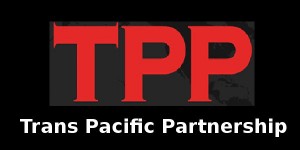

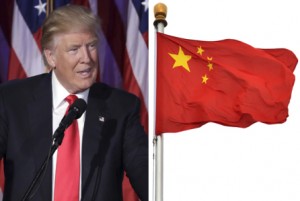
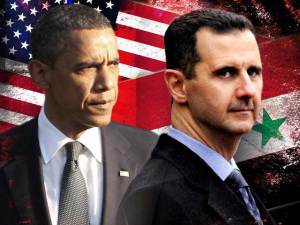
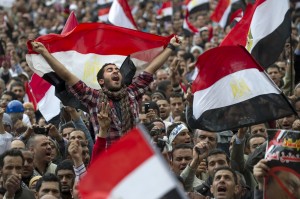
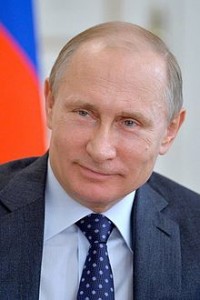



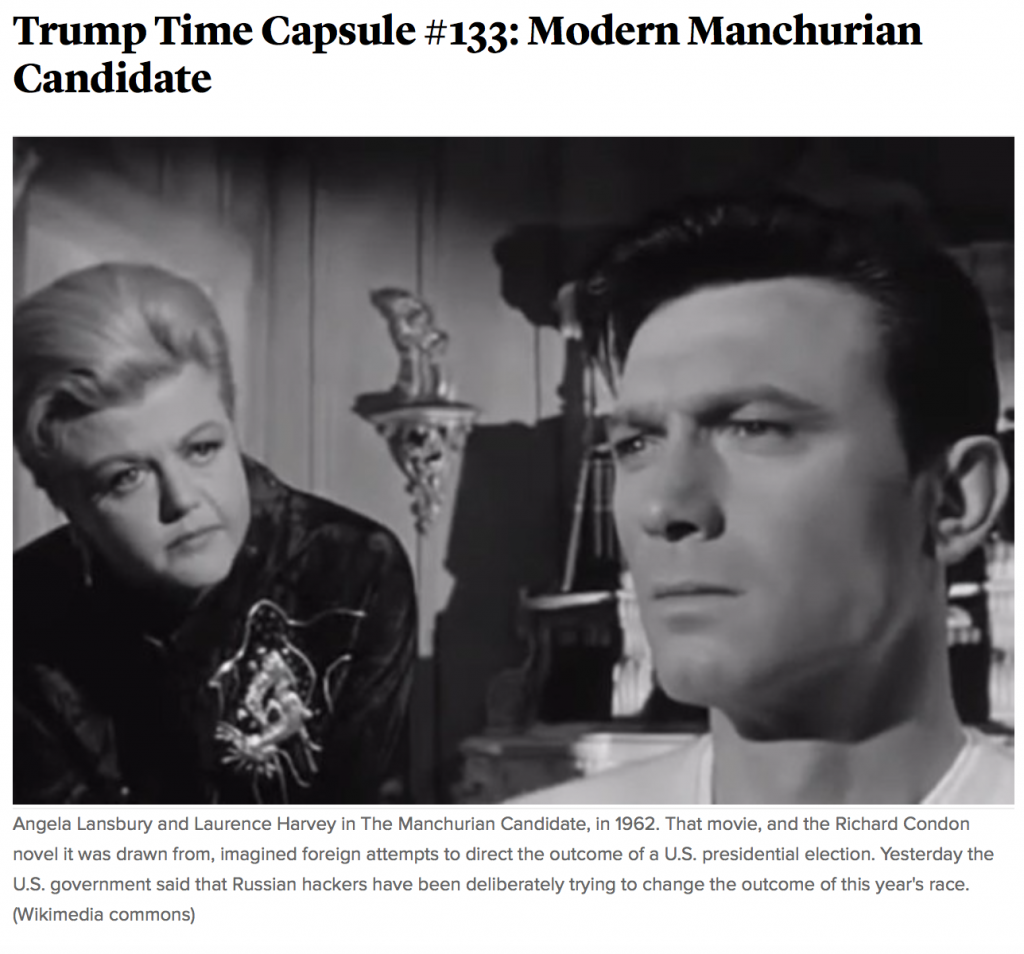
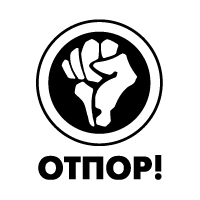 In August 1999, the CIA set up a training program for a Serbian NGO entitled OTPOR which subsequently played a key role in the engineered protest movement conducive to the downfall of president Slobodan Milosevic. A few years later, OTPOR established a training and strategizing outfit entitled
In August 1999, the CIA set up a training program for a Serbian NGO entitled OTPOR which subsequently played a key role in the engineered protest movement conducive to the downfall of president Slobodan Milosevic. A few years later, OTPOR established a training and strategizing outfit entitled 



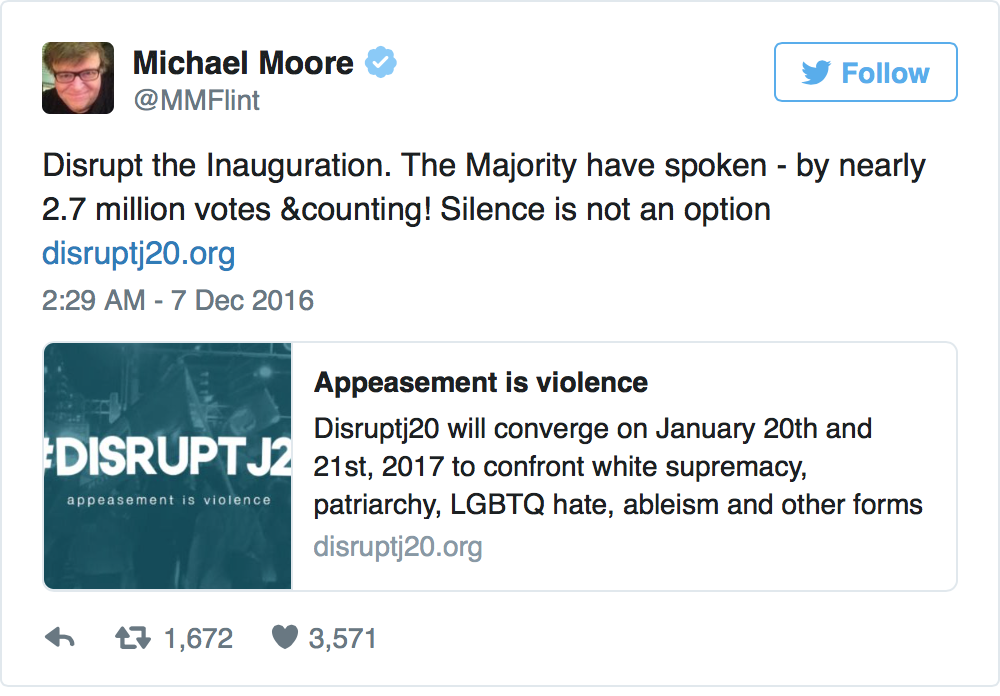

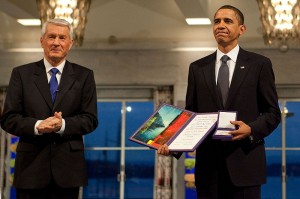
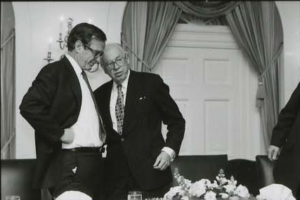
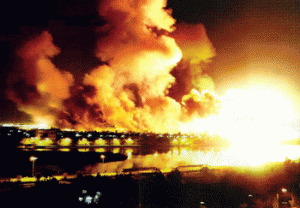












 Em maio de 2004, são revelados chocantes crimes contra a humanidade pelos alegados “libertadores do Iraque” revelando uma “guerra particular às custas do Estado” conforme reportaria duramente dias depois o semanário alemão Der Spiegel, revista justamente de um dos países que mais se opõem à invasão ao Iraque (a começar pelo governo de Angela Merkel): inúmeras torturas de soldados dos EUA contra prisioneiros de guerra (futuramente, seria comprovado que mais de 80% eram inocentes, e viriam à tona ainda imagens de esposa e filhas desses prisioneiros estupradas pelos militares estadunidenes) a mando do secretário de Defesa de Bush, Donald Rumsfeld, que a princípio negou tudo. Tais práticas fazem o mundo recordar o terror causado pelos nazistas durante a II Guerra Mundial.
Em maio de 2004, são revelados chocantes crimes contra a humanidade pelos alegados “libertadores do Iraque” revelando uma “guerra particular às custas do Estado” conforme reportaria duramente dias depois o semanário alemão Der Spiegel, revista justamente de um dos países que mais se opõem à invasão ao Iraque (a começar pelo governo de Angela Merkel): inúmeras torturas de soldados dos EUA contra prisioneiros de guerra (futuramente, seria comprovado que mais de 80% eram inocentes, e viriam à tona ainda imagens de esposa e filhas desses prisioneiros estupradas pelos militares estadunidenes) a mando do secretário de Defesa de Bush, Donald Rumsfeld, que a princípio negou tudo. Tais práticas fazem o mundo recordar o terror causado pelos nazistas durante a II Guerra Mundial.


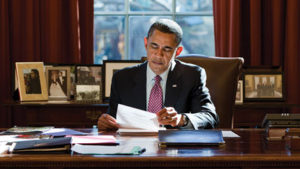
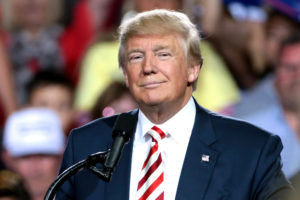
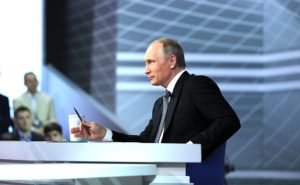

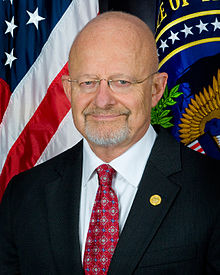
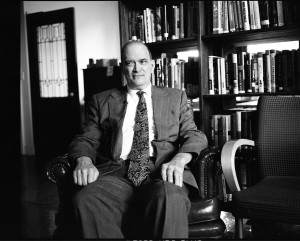




 Manning’s release, however, was a carefully timed, politically-motivated stunt, devoid of moral convictions, principles, or mercy – as the stunt is designed to appear. At any time during the administration of Barack Obama, Manning’s sentence could have been both vigorously opposed and commuted. However it was not. Manning was left to languish in prison, unjustly confined, so an exiting US president could perform a spectacle, adding to the illusion of both his own legacy, and to that of the office itself.
Manning’s release, however, was a carefully timed, politically-motivated stunt, devoid of moral convictions, principles, or mercy – as the stunt is designed to appear. At any time during the administration of Barack Obama, Manning’s sentence could have been both vigorously opposed and commuted. However it was not. Manning was left to languish in prison, unjustly confined, so an exiting US president could perform a spectacle, adding to the illusion of both his own legacy, and to that of the office itself.

